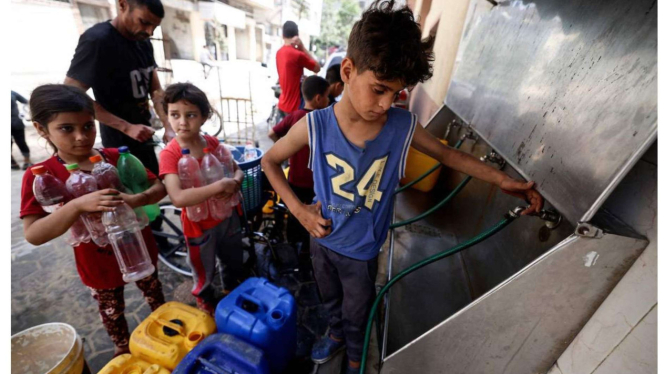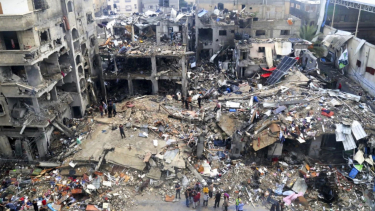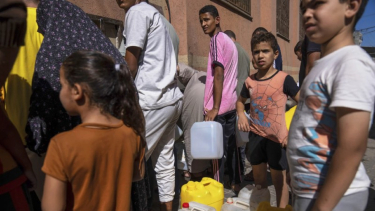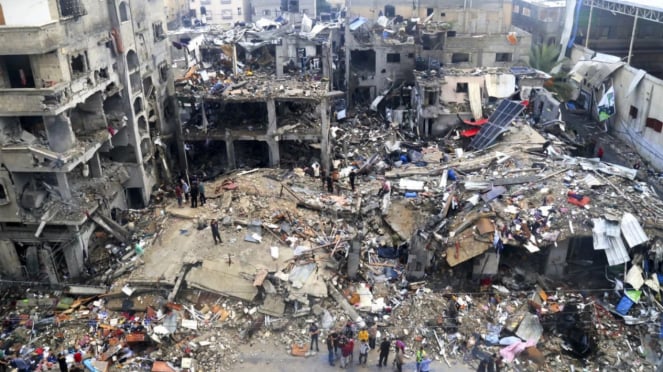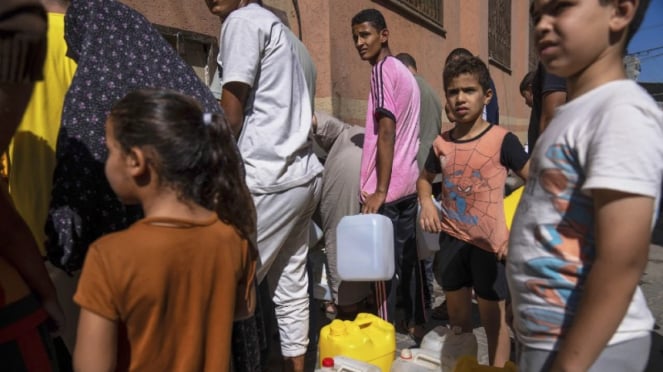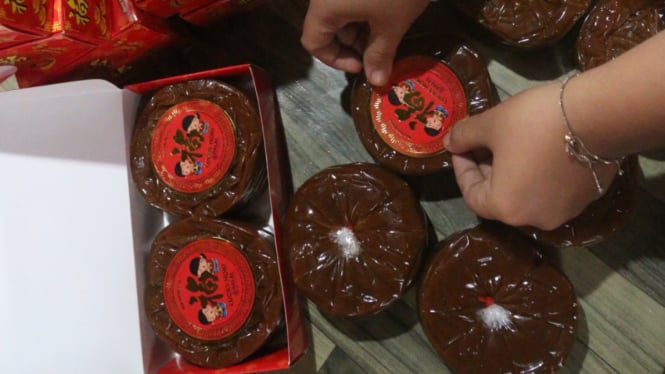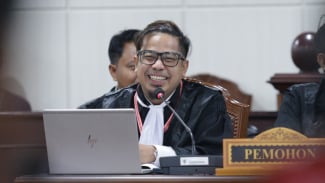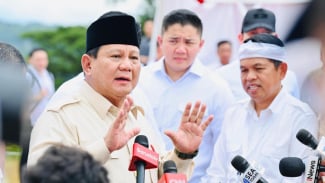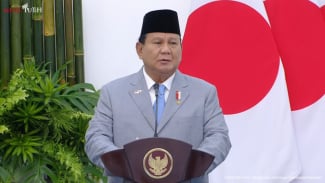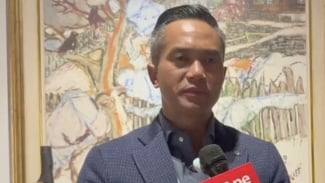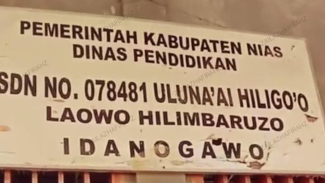Israel Bans Palestinians to Collect Rainwater
- Middle East Monitor
Israel – In October-November 2023, as Israel continued to bombard Gaza amid the ongoing Israel-Hamas war, a number of posts drew attention to the challenges facing Palestinians in the West Bank, particularly regarding Israel's control over access to water.
However, one of the more "unusual" issues is that Israel prohibits Palestinians from collecting rainwater, "claiming" that the water belongs to Israel.
A Reddit post claims that according to a 2011 United Nations report, "(Palestinians) living in the West Bank do not have the right to collect rainwater or build wells on their LAND because rainwater belongs to 'Israel'."
Warga Palestina mencari para korban di reruntuhan gedung di Gaza, yang hancur akibat serangan Israel.
- AP Photo/Mahmoud Abo Salamah.
A viral post on social media X also stated, "Rainwater belongs to 'Israel'. Palestinians are forbidden to collect rainwater" and also quoted a UN report.
Many netizens were upset, and asked whether Palestinians are indeed prohibited by Israeli authorities from collecting rainwater for "household and agricultural needs."
The above claim is taken from an actual report by an independent human rights organization submitted to the UN body in 2011, which found that Palestinians in the West Bank were unable to collect rainwater for their needs.
The report is titled, "Israeli human rights violations related to water and sanitation in the OPT (Occupied Palestinian Territory)" and is considered a non-UN document.
It was written by the Emergency Water, Sanitation and Hygiene (EWASH) group, a coalition of nearly 30 organizations working in the water and sanitation sector in the occupied Palestinian territory, and Al-Haq, a Palestinian human rights organization in the West Bank.
Warga Palestina mengantre air bersih.
- AP Photo/Fatima Shbair.
The document was submitted in September 2011 to the UN Committee on Economic, Social and Cultural Rights (CESCR), a body of independent experts at the United Nations.
The report refers to a special Israeli military order in 2009 stating that rainwater belongs to Israel.
"In July 2009, Israeli military forces issued a stop work order and/or demolition of reservoirs under construction in the village of Tuwani, despite the Tuwani villagers facing severe water shortages due to drought, and the need for increasingly stringent movement restrictions by Israel ... to collect tank water, and attacks on water resources and infrastructure by Israeli settlers. If built, these reservoirs would significantly alleviate the water crisis for the Tuwani community,"
"However, according to Israeli military orders in force in the area, rain belongs to the Israeli government and Palestinians are prohibited from collecting rainwater for domestic or agricultural use. In 2010, Israel approved the construction of a water replenishment point in Tuwani village which alleviated the village's water availability problem, although the capacity of the water replenishment point was far below the capacity requested by humanitarian agencies (less than 1/4), to serve the surrounding villages which are considered the communities most at risk of water scarcity in the West Bank," the report continued.
The findings in the above report mirror those in Amnesty International's 2017 report, "The Occupation of Water."
According to the report, in 1967, Israeli military authorities consolidated full control over all water resources and water-related infrastructure in the occupied Palestinian territory.
Military Order 158 required all Palestinians to obtain permission from the Israeli military before building new water installations. Since then, any water withdrawals and construction of water infrastructure must go through Israel, which Amnesty says has had "devastating" consequences for Palestinians there.
The Amnesty report also states:
"(Palestinians) cannot drill new water wells, install pumps or deepen existing wells, in addition to having no access to the Jordan River and freshwater sources. Israel even controls rainwater collection in much of the West Bank, and rainwater collection tanks owned by Palestinian communities are often destroyed by Israeli soldiers. As a result, about 180 Palestinian communities in rural areas of the occupied West Bank have no access to clean water, according to OCHA. Even in towns and villages connected to the water network, taps often run dry."
Although Israeli military orders to control Palestinian rainwater collection were reported more than a decade ago, the overall status of Israeli control over Palestinian water supplies continues to this day.
